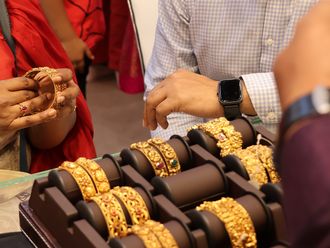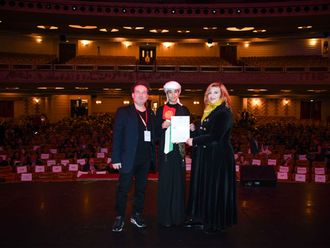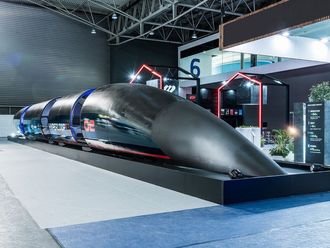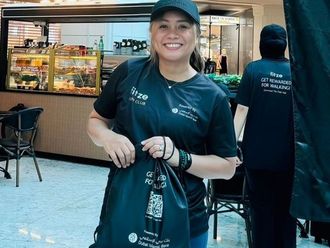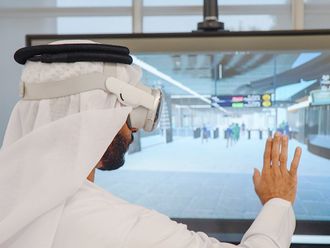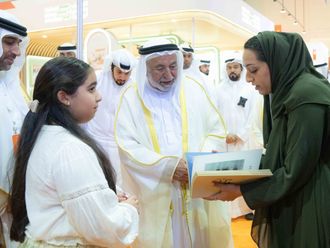he military arrested Chinese businessman Ping Tan, suspected as being a major financier of the Abu Sayyaf group since the early 90s, a radio report said, adding that he allegedly negotiated for the recent release of two Filipino hostages.
Officials of the Southern Command presented him to the media in Isabela, Basilan. His arrest was a sign that the military crackdown on suspected civilian supporters of the group, has succeeded, said Presidential spokesperson Rigoberto Tiglao, adding this would force the group to go on the run and they would soon release their 21 hostages in the southern Philippines. Also recently arrested as a civilian supporter of the group was Sipad Antonio, village chair of Puento Maluso, Basilan, a known Abu Sayyaf stronghold.
The military has a list of 200 civilian supporters of the Abu Sayyaf, said Tiglao, adding: "We don't distinguish whether they are members or sympathisers. The point is if they are actively supporting the Abu Sayyaf they are considered conspirators."
"The aim of this drive is to send the message to the supporters that if the hostages are found with them or in their homes, they will be accused of conspiracy in the crime of kidnap for ransom," said Tiglao.
"We're draining the pond that supports the terrorist fish," said military spokesperson Brig. Gen. Edilberto Adan, in reference to the government's effort to crush the hostage-taking group which is based in Basilan and Jolo.
"It's been shown that pure tactical search and clear operations cannot accomplish our objective of neutralising the Abu Sayyaf members because they can hide in urban centres," Adan said. Of the 71 recently arrested Abu Sayyaf members in the southern Philippines, only 52 remained incarcerated and the rest were released because of "weak evidence", said Tiglao, adding the branch of the justice department in Basilan is preparing the cases to be filed against them.
Five of those arrested have $40,000 (P1 million) to $5,000 (P250,000) rewards on their heads. They are not Abu Sayyaf leaders, Tiglao said. One of the more known Abu Sayyaf members who was arrested was Anwar Abdul Hamid. He carried a $ 45,000 on his head. He was one of the 41 people captured in Basilan and Sulu.
Informers have positively identified all the suspected Abu Sayyaf members, said Maj. Alberto Gepilano, operations officer the Joint Task Force Comet. The Abu Sayyaf's armed members are between 200 and 300, mostly "in the hills", the military said.
"The military is also concerned that the Abu Sayyaf group has split into several units and taken the remaining 21 hostages to various places in Basilan," he said. Justice Secretary Hernando Perez reiterated that human rights are being respected in the Mindanao provinces where the military is cracking down on the Abu Sayyaf.
"The fact that the justice department is present in Basilan and Zamboanga assures that suspects will not be kept in jail (without sufficient evidence)," Perez said. The military has "every right to take unconventional methods against the Abu Sayyaf," said Perez.
President Gloria Macapagal Arroyo said the crackdown against the Abu Sayyaf bandits would help prop-up the country's sagging economy and help strengthen the Philippine peso. It is now P53 to a dollar.
But some politicians and human rights advocates have criticised the crackdown. "If there is something to avoid, it is indiscriminate arrest or arresting just anybody in their eagerness to show results," said Senate President Aquilino Pimentel.
"If that happens, the problem will only be exacerbated. That will alienate the government from the people, heighten tension and drive more residents into the folds of the Abu Sayyaf," he told reporters.
Moro Islamic Liberation Front (MILF) spokesman Eid Kabalu said residents hurt by the crackdown could seek the Abu Sayyaf's help. "We had said before that the reward system will result in human rights violations and it's becoming real now," Kabalu said.
Chinese Businessman held in Manila crackdown
The military arrested Chinese businessman Ping Tan, suspected as being a major financier of the Abu Sayyaf group since the early 90s, a radio report said, adding that he allegedly negotiated for the recent release of two Filipino hostages.


